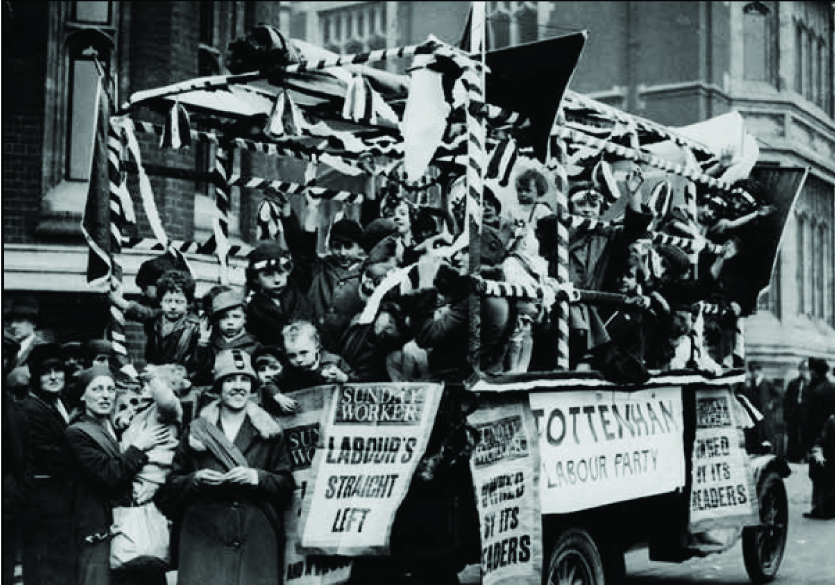this article first appeared in the Weekly Worker
By citing a few thoroughly decontextualised phrases, the establishment finds Marx – and therefore contemporary Marxism – guilty of anti-Semitism. Jack Conrad puts the record straight
As a young man Karl Marx studied and thoroughly absorbed the materialist and atheist ideas of Ludwig Feuerbach (1804-72). However, he soon became convinced that, while atheism was a vital intellectual premise, historic processes, developments in the means of production, social relations and crucially revolutionary practice had to be made the real starting point of “our criticism”.
Inevitably, that necessitated further, deeper, endless investigations – not least into the “inverted reality” of the bourgeois world. Hence the first of two articles which Marx wrote in what was a seminal period spent in the snug little Rhineland town of Kreuznach between March and October 1843 – just prior to his enforced move to Paris.
On the Jewish question was published in the first and only edition of the Deutsch-Französische Jahrbücher journal (February 1844). A very early work: concepts such as capital, exploitation and surplus value are not there yet. Concrete history hardly gets a look in. Nor does the proletariat.
Nonetheless, On the Jewish question constitutes a devastating rebuttal of Bruno Bauer – the Young Hegelian radical, atheist firebrand and a former collaborator and friend. More importantly – not least because of Bauer’s present-day status as a mere footnote – On the Jewish question established a profound critique of the limited way liberals typically treat demands for equality, freedom, rights, etc.
Emancipation
Protestant Christianity was the only officially recognised religion in Frederick William IV’s Prussia. Jews in particular faced a whole raft of laws which humiliatingly discriminated against them. Bauer – barred from teaching in 1842 for daring to show that biblical stories were full of human invention – argued, in his book, The Jewish question (1843), that Jews can achieve political and civic emancipation only if they renounce their religious allegiances, religious modes of thinking and religious practices.
He barbedly asks, if no-one in Germany is politically emancipated, how are we going to free you Jews? Demands for Jewish emancipation were, therefore, dismissed as a demand for special treatment. Those who continued to make such selfish claims on the Prussian state were branded “egoists”.
Moreover, Jews who appealed to what was an explicitly Christian state for equality were inexcusably legitimising the regime of general oppression. The Christian state can only grant privileges. Without showing the least blush of shame, Bauer then proceeded to argue that in Prussia, Jews have the privilege of being a Jew. Therefore Jews have rights not enjoyed by Christians. Why should Jews be granted rights which only Christians enjoy? Therefore, in the name of bringing about general freedom, he felt fully justified in rejecting demands for Jewish equality in a Christian state.
Bauer went further. He maintained that granting Jewish rights would be incompatible with either the political rights of citizens (eg, the 1787 US constitution) or general civic rights (eg, France’s 1789 ‘Declaration of the rights of man’). According to Bauer, an atheist state was alone the only conceivable solution … and for him that meant Jews, Lutherans, Catholics – everyone – divesting themselves of their religion. He wanted to free the state from Judaism, Lutherism, Catholicism and religion in general. But, of course, that still left the state.
Note, Bauer drew a sharp theological line of distinction between Judaism and Christianity: in the process he depicts Judaism as narrow and tribal; Christianity as universal and superior. Sadly, after the failure of the 1848 German revolution, Bauer swung violently to the right and began to promote an ever more vile anti-Semitism: these Jewish “white Negroes” should be “shipped to the land of Canaan”.
As a militant champion of genuine human liberation, Marx rejected Bauer’s ‘solution’ as theoretically flawed and totally inadequate. Bauer was trying to solve a social question as if it were purely theological. He failed to see that religious inequalities were not the cause of social inequalities – merely their symptom. Bauer’s critique was also misdirected because it was aimed at the Christian state, not the state as such.
Bauer’s problem – and that of bourgeois radicals in general – was that he mistook political emancipation, embodied in declarations, constitutions, etc, for human emancipation. Simply decreeing the separation of church and state, while needed, could not ensure the disappearance of religion (and its associated prejudices). The original 13 American states, for example, had written separation of the state from organised religion into their constitutions, and yet the US remained “pre-eminently the country of religiosity”.
Bauer was still using the criticism of religion as his basis for the criticism of politics, but, as Marx insisted:
[T]he existence of religion is the existence of a defect … We no longer regard religion as the cause, but only as the manifestation, of secular narrowness … History has long enough been merged in superstition; we now merge superstition in history. The question of the relation of political emancipation to religion becomes for us the question of the relation of political emancipation to human emancipation.
So it is not that Marx rejects demands for political and civic equality. Quite the reverse. He considers the political emancipation of Jews perfectly feasible … even without them renouncing their religion completely and irrevocably. However, the achievement of political emancipation is not human emancipation. Political emancipation in and of itself can only go so far.
Taking issue with his own earlier reliance on universal suffrage, for example, Marx points out that some American states had abolished property qualifications for (male) participation in elections. From the liberal standpoint, it could be said that “the masses have thus gained a victory over the property-owners and moneyed classes”, that the “non-owner had become the law-giver for the owner”.This victory, however, was only partial, because there is a world of difference between everyone getting the vote – desirable and necessary as that is – and getting everyone real and effective power over their lives.
Religion
Unsurprisingly, On the Jewish question reiterates the ethical postulate Marx presented in ‘Debates on freedom of the press’ – a six-part supplement carried by the Rheinische Zeitung back in May 1842. Here Marx lambasted Prussian press censorship – “a perfumed abortion”, he called it. Prometheus-like, he defiantly proclaims: “only that which is a realisation of freedom can be called humanly good”.
Since organised religion, by its very nature, makes human beings into slaves of an imaginary deity, conceding them merely a specious sovereignty in alienated form, it cannot, in Marxist terms, be a force for human good in any meaningful sense. Religion and ‘morality’ (ie, bourgeois morality) exist in the abstract sphere of ‘public life’, the realm of illusory collectivity and illusory sovereignty represented by the state, whereas the concrete sphere of ‘everyday life’ – civil society – remains dominated by individual antagonisms and by all the kinds of inhuman domination, bondage and debasement implicit in the category of alienation.
Bruno Bauer’s mistake was to imagine that religious emancipation in and of itself could free humanity, whereas, for Marx, even the most far-going version of (bourgeois) political emancipation cannot succeed in achieving freedom. Religious emancipation gives freedom of religion, but it does not give freedom from the rule of religion, property or trade: it just gives us the right to profess the religion of our choice, hold property and practise trade as individuals in a civil society dominated by the bellum omnium contra omnes (war of all against all).
Just as religion, though constituting an illusory collectivity of humanity in relation to god, actually renders us into alienated, atomised individuals in relation to an imaginary creator, so political emancipation, while endowing us with an illusory sovereignty as citizens of the state, renders us into alienated, atomised individuals in a civil society dominated by property and the power that flows from it. Marx writes:
“Only when the real, individual man reabsorbs in himself the abstract citizen, and as an individual human being has become a species-being in everyday life, in his particular work, and in his particular situation; only when man has recognised and organised his own ‘forces propres’ [own powers] as social forces, and consequently no longer separates social power from himself in the shape of political power; only then will human emancipation have been accomplished.”
The central idea is that humanity can achieve real emancipation by rediscovering its identity in and through community, but not through the imaginary community represented by either religion or the state.
In the second part of On the Jewish question, the category of religious alienation appears in another guise – strikingly adapted in order to illustrate the significance of money and commodities in capitalist society – in a way that foreshadows some of Marx’s fundamental ideas about commodity fetishism and the alienation inherent in the capitalist mode of production. Hence the following passage:
“Selling is the practice of externalisation. Selling is the practical aspect of alienation. Just as man, as long as he is in the grip of religion, is able to objectify his essential nature only by turning it into something alien, something fantastic, so under the domination of egoistic need he can be active practically and produce objects in practice only by putting his products, and his activity, under the domination of an alien being, and bestowing the significance of an alien entity – money – on them.”
Feuerbach’s ‘inverted reality’ – a world in which the essence of everything is externalised (entäussert), or objectified (vergegenständigt) into an alien, imaginary entity, a process whereby all values are turned upside-down – could not be more clear. Both notions, of course, appear – in a richer, more profound and dialectical form – in Marx’s later critique of political economy.
But – some may ask – how can the social role of money and commodities be equated with religion? Is this not stretching a point? No, it is not, for by ‘religion’ and ‘religious’ in this context Marx refers not to the cultic beliefs or observances of this or that religion, but to the subordination of human beings to a thing of their own making. Hence, in Capital Marx says: “in religion man is governed by the products of his own brain”. He elaborates:
“A commodity is, therefore, a mysterious thing, simply because in it the social character of men’s labour appears to them as an objective character stamped upon the product of that labour; because the relation of the producers to the sum total of their own labour is presented to them as a social relation, existing not between themselves, but between the products of their labour … [the commodity is] a definite social relation between men … [and] assumes, in their eyes, the fantastic form of a relation between things. In order, therefore, to find an analogy, we must have recourse to the mist-enveloped regions of the religious world. In that world, the productions of the human brain appear as independent beings endowed with life, and entering into relation both with one another and the human race. So it is in the world of commodities with the products of men’s hands.”
It is precisely the analogical, paradigmatic role of religious alienation in unravelling the “mysterious” nature of commodities, money and much else in the world of political economy that is of central importance to an understanding of the development of Marx’s thought. Commodities are the products of our hands and brains, which exert an alien power over us, at least exist in actuality, whereas god or gods are entirely a figment of the human imagination, with no existence in objective reality. It is precisely the ‘purity’ of religious alienation in this respect that endows it with a prototypical value when considering alienation in general.
The point is, of course, that the relationship between religious alienation and its ‘secular’ counterpart in the world of humanity’s productive activity rests on the same basis of a fundamental inversion of subject and object, a radical confusion between appearance and reality at every level:
The religious world is but the reflex of the real world … The religious reflex of the real world can … only then finally vanish when the practical relations of everyday life offer to man none but perfectly intelligible and reasonable relations with regard to his fellow men and to nature.
Feigned horror
While Bauer argued in terms of the emancipation of “the Sabbath Jew” – Jews seen purely in terms of their religion – Marx extends the notion of emancipation by focusing on the oppression of Jews in an actual socio-economic context:
“Let us not look for the secret of the Jew in his religion, but let us look for the secret of his religion in the real Jew. What is the secular basis of Judaism? Practical need, self-interest. What is the worldly religion of the Jew? Huckstering. What is his worldly god? Money. Very well then! Emancipation from huckstering and money – consequently from practical, real Judaism – would be the self-emancipation of our time.”
Why, for Marx, is “Emancipation from huckstering and money, consequently from practical, real Judaism” rated as the “self-emancipation of our time”? Because it is money that dominates all social relations, money and the power that flows from it is that constitutes the material base of capitalist society:
“Money is the jealous god of Israel, in face of which no other god may exist. Money degrades all the gods of man – and turns them into commodities. Money is the universal, self-established value of all things. It has therefore robbed the whole world – both the world of men and nature – of its specific value. Money is the estranged essence of man’s work and man’s existence, and this alien essence dominates him, and he worships it.”
Biased, purchased or merely worthless opinion reacts with feigned horror to such passages, denouncing them as irrefutable proof of Marx’s deep-seated anti-Semitism. Here are three professional Marx bashers:
- Jonathan Freedland, The Guardian’s resident Zionist, writes that, given the “2,000-year-old” practice of equating “Jews and the wickedness of money, it absurd to imagine any one of us would be immune to [anti-Semitism]. Inevitably, plenty of Jews have themselves internalised it – including no less than Karl Marx, whose writings are peppered with anti-Jewish sentiment.”
- Nothing compared to Jonah Goldberg, the rightwing US commentator and author of Liberal fascism (2007). He insists, that for Marx, “capital and the Jew are different faces of the same monster …. Marx’s writing, particularly on surplus value, is drenched with references to capital as parasitic and vampiric …. The constant allusions to the eternal wickedness of the Jew, combined with his constant references to blood, make it hard to avoid concluding that Marx had simply updated [medieval anti-Semitic imagery] and applied it to his own atheistic doctrine. His writing is replete with references to the ‘bloodsucking’ nature of capitalism. He likens both Jews and capitalists (the same thing in his mind) to life-draining exploiters of the proletariat.”
- Despite his status as a celebrity professor, Simon Schama displays exactly the same rigour and intellectual honesty: “Demonstrating that you do not have to be a gentile to be an anti-Semite, Karl Marx characterised Judaism as nothing more than the cult of Mammon, and declared that the world needed emancipating from the Jews.”
In other words, Marx was a ‘self-hating’ Jew. However, such a claim could not be more wrong. Few of Marx’s detractors go to the bother of explaining that he was combating the malign anti-Semitism of Bruno Bauer and advocating Jewish emancipation.
Put aside Marx’s own Jewishness, a religiously pious mother and rabbinical lineage: a good case can be made for his communism being connected, consciously or otherwise, with messianic Old Testament prophets, such as Amos, Micah and Habakkuk. Possibly this came through his personal acquaintance with the proto-Zionist Moses Hess (1812-72), who likewise condemned the “Judeo-Christian huckster world”; a line of thought that surely came via Spinoza, Goethe and Hegel. In turn their passionate commitment to human freedom recognisably descends from the Christian utopias of the 16th and 17th centuries.
Not that I would go along with Erich Fromm (1900-80), when he describes Marx’s communism as “the most advanced form of rational mysticism”. Such a paradoxical formulation, while having the virtue of counteracting the dismal technological determinism of the Stalinites, runs the risk of appearing to reconcile Marxism with religion.
Either way, Marx’s actual argument in On the Jewish question, can neatly be summarised:
- Since the rights of man and citizen include freedom of religion, what grounds can there be for excluding Jews because of their religion?
- Since the rights of man include rights of egoism, what grounds can there be for denying civil rights to Jews because of their alleged egoism?
- Since the rights of citizens abstract ‘political man’ from their social role, what grounds can there be for excluding Jews because of their allegedly harmful social role?
- Since money in modern society is the supreme world power, what grounds can there be for denouncing Jews for allegedly turning money into their god?
While Bauer represents the Jew as a “financial power”, Marx responds that society now revolves around huckstering, trading and making money. While Bauer imagines that money is “the practical spirit of the Jews”, Marx responds that money has also become “the practical spirit of the Christian nations”. While Bauer says that money is the “jealous god of Israel”, Marx responds that the god of the Jews has “become the god of the world”.
Nor did Marx and Engels hold back from combating German or ‘true’ socialism that was capable, as they put it in the Communist manifesto, of little more than “hurling the traditional anathemas” against liberalism, against representative government, against bourgeois freedom of the press.
Amongst those traditional anathemas was, of course, that Jews constituted “a secret world power which makes and unmakes governments”, a “secret force behind the throne”, a “secret force which holds Europe in its thrall”. ‘True’ socialism’s most noted representative was Karl Grün and, naturally, he expressed his profound dislike of the class struggle and the “men of destructive tendencies, the levellers”: ie, Marx’s party. Objectively, ‘true’ socialism served to defend the interests of the reactionary petty bourgeoisie: parsons, university professors, country squires and government officials.
Sense and sensibilities
Fewer still of Marx’s detractors show any appreciation of the fact that it is thoroughly misleading to read present-day sensibilities back onto 19th century language. A telling example is Marx’s race banter contained in private correspondence with Frederick Engels (amongst others).
In 1862, infuriated by what he saw as a visiting Ferdinand Lassalle’s meanness, ostentation and political shallowness, an impoverished Marx wrote to Engels cursing him as a “Jewish nigger”. Needless to say, such rages cooled. Given news of Lassalle’s untimely death, just two years later, Marx expressed his “great sorrow” to Lassalle’s lover, Sophie von Hatzfeldt: Lassalle “was one of the people by whom I set great store”. He went on to compare him to a triumphant “Achilles”.
Paul Lafargue, his future son-in-law, got called his “medical Creole”. Marx was a possessive father. He urged Lafargue to curb his “Creole temperament” till after his marriage with Laura. Within the Marx household Lafargue was also called the “African”. Such references were not a sign of prejudice, but were “couched in affectionate and joking terms and were seen as a source of amusement, not concern”. Not that any of this seems to have offended Lafargue. He went on to be one of the leaders of the French Workers Party (an implicitly Marxist organisation). Again in terms of race language, when fellow socialist Daniel De Leon asked him about his origins, Lafargue promptly replied: “I am proudest of my negro extraction.”
Because of his dark complexion and wild hair, Marx’s closest friends and family nicknamed him “Moor” – a racial tag he happily embraced. True, Marx, to his discredit, suffered a brief infatuation with Pierre Trémaux and his now totally obscure book, The origins and transformation of man and other beings (1865). He momentarily credited this work of biological racism as a “very significant advance over Darwin”. Engels, it should be added, did not share his enthusiasm: Trémaux’s “evidence” for his “hypothesis” is nine-tenths based on “erroneous or distorted facts and the remaining 1/10 proves nothing”.
As might well be expected, other contemporary Jewish progressives wrote in exactly the same terms as Marx: eg, Ferdinand Lassalle and Henrich Heine. And the fact of that matter is that Marx was criticising not Judaism alone, but what he saw as a “Judeo-Christian complex”. A complex which elevates money-making above every human value, relationship and instinct. Eg, Marx writes: “Judaism reaches its highest point with the perfection of civil society, but it is only in the Christian world that civil society attains perfection.”
Needless to say, it is political programme, political statements and political actions which really matter. Leave aside his advocacy of Jewish emancipation. Marx savaged American slavery with a passion, fought to ensure that the British government did not intervene in support of the southern slavocracy in the US civil war and, crucially, through his leadership of the First International, championed the northern cause. Again and again he urged Abraham Lincoln to take up the call for abolition. August Nimtz argues that, in practical terms, Marx and Engels, in conjunction with their co-thinkers in America, had an “enormous influence” on what amounted to the second American revolution. And, famously, in Capital volume 1, Marx coined this memorable aphorism: “Labour cannot emancipate itself in the white skin, where in the black skin it is branded.”
When it comes to race-language, Hal Draper convincingly shows that Marx was merely following the near-universal practice of his day. One could make the same point about his male-dominated language too: ie, the word ‘man’ is used more or less unremittingly as synonymous with ‘humanity’. Hence, ‘Jew’ is sometimes treated as being synonymous with ‘usury’.
This is a relational join with well documented material roots in the Christian economics of European feudal society. Jews were barred from either working the land or holding the land. Hence, they had no other socio-economic niche open to them apart from trade, brokering and lending money for interest. Jews were, as a result, widely reviled. Peasants, artisans and nobles alike despised them with a passion.
Not that hatred of the Jews began with Christianity, as Jonathan Freedland implies. Seneca considered Jews to be a criminal race. Juvenal thought that Jews existed only to cause trouble for other peoples. Quintilian regarded Jews as a curse to all other peoples. The aristocratic classes in classical antiquity upheld an elitist disdain for any form of economic activity other than that based on agriculture.
However, despite the widespread hatred of Jews, feudal monarchs both protected the Jewish population and exploited them. They were needed for loans and subject to high levels of taxation. Hence the widely acknowledged antagonism between the Jews and feudalism – but likewise the widely acknowledged bond between the Jews and feudalism.
So historically Judaism survived not because of the loyalty of Jews to their religion. No, Judaism survived because Jews constituted a distinct economic caste within the feudal nexus. And, though Jews were subjected to occasional bouts of persecution and ongoing oppressive provisions, they were vital to the working of the system.
And as transcontinental intermediaries between the Muslim east and the Christian west Jewish merchants could amass very considerable fortunes. The Catholic church preached against Jewish usury, but did not demand extermination. That privilege was reserved for pagans and the ever more luxuriant outgrowth of Christian heresies.
Proudhon and Bakunin
When it comes to the left, for a hatred of Jews of a kind that really does resemble the Nazis, one must look not to the writings of Marx or Engels, but Pierre-Joseph Proudhon (1809-65). Though never one to let facts get in the way of a good libel, Simon Schama has him echoing Marx’s “message”: “blood-sucking, whether the physical or the economic kind, was what Jews did.” So Marx is held morally responsible for this notorious passage written by Proudhon in his private notebook:
December 26, 1847: Jews. Write an article against this race that poisons everything by sticking its nose into everything without ever mixing with any other people. Demand its expulsion from France with the exception of those individuals married to French women. Abolish synagogues and not admit them to any employment. Demand its expulsion. Finally, pursue the abolition of this religion.
It’s not without cause that the Christians called them deicides. The Jew is the enemy of humankind. They must be sent back to Asia or be exterminated. H Heine, A Weill, and others are nothing but secret spies; Rothschild, Crémieux, Marx, Fould, wicked, bilious, envious, bitter, etc, etc, beings who hate us. The Jew must disappear by steel or by fusion or by expulsion. Tolerate the elderly who no longer have children. Work to be done – What the peoples of the Middle Ages hated instinctively I hate upon reflection and irrevocably. The hatred of the Jew like the hatred of the English should be our first article of political faith.
Moreover, the abolition of Judaism will come with the abolition of other religions. Begin by not allocating funds to the clergy and leaving this to religious offerings. And then, a short while later, abolish the religion.
Sad to say, Mikhail Bakunin (1814-76) held closely related views. And note, one again, that Marx is counted amongst the Jews to be hated:
“This whole Jewish world, comprising a single exploiting sect, a kind of blood-sucking people, a kind of organic, destructive, collective parasite, going beyond not only the frontiers of states, but of political opinion – this world is now, at least for the most part, at the disposal of Marx, on the one hand, and of Rothschild, on the other … This may seem strange. What can there be in common between socialism and a leading bank? The point is that authoritarian socialism, Marxist communism, demands a strong centralisation of the state. And, where there is centralisation of the state, there must necessarily be a central bank, and, where such a bank exists, the parasitic Jewish nation, speculating with the labour of the people, will be found.”
Not that the followers of either Proudhon or Bakunin, at least to my knowledge, have a record of chanting ‘Death to Jews’, ‘Death to reds’, as they burn, beat and massacre. That ‘honour’ goes to the Orthodox Christian Black Hundreds in Russia; to Polish nationalists, egged on by a bigoted Catholic church, in 1918-38; and to the Nazi Third Reich (blessed by the German Christian Movement and leading Protestant and Catholic bishops alike).
Today, once again, anti-Semitism is on the rise: in Poland, Hungary, Austria and Germany. Once again “traditional anathemas” are being hurled. George Soros serves as the living embodiment of the Protocols of the elders of Zion. He is the “secret force” that explains miserable living standards, mass migration and the spread of corrosive liberal values. But it is Muslim migrants, freedom of expression, women’s rights, leftwing activists and workplace conditions which bear the brunt of current attacks.
Meanwhile, Israel, with the full support of Donald Trump, plunges ever further to the right. The conditions are in place for yet another bout of ethnic cleansing of the native Palestinian population. Zionist demonstrators in Jerusalem chant ‘Death to Arabs’. And here in Britain the likes of Freedland and Schama play their chosen role in a witch-hunt designed to silence pro-Palestinian voices, demonise the left and prevent a radical Labour government led by Jeremy Corbyn.
The danger is obvious. A British version of Jarosław Kaczyński’s Law and Justice Party, Viktor Orbán’s illiberal democracy, Heinz-Christian Strache’s Freedom Party, Germany’s AfD … and the return of real anti-Semitism.

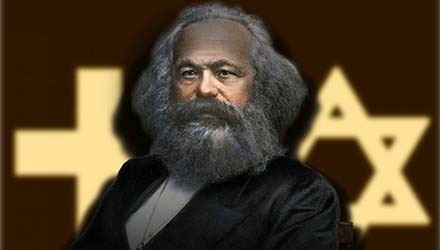

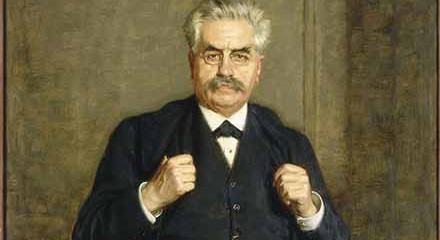
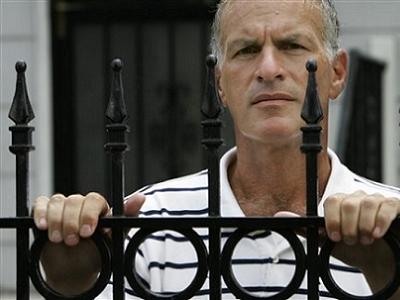
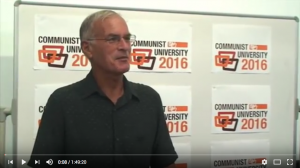
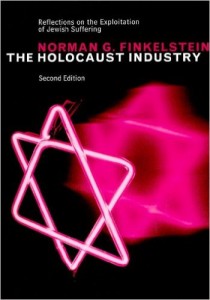 On the surface, Finkelstein has impeccable credentials to write on the horror of that broke over European Jewry in WWII. Both his mother and father were survivors of the Warsaw ghetto and the Nazi concentration camps. Apart from his parents, every family member was exterminated by the Nazis. In the words of Finkelstein, “My earliest memory, so to speak, of the Nazi holocaust is my mother glued in front of the television watching the trial of Adolf Eichmann (1961) when I came home from school” (p5).
On the surface, Finkelstein has impeccable credentials to write on the horror of that broke over European Jewry in WWII. Both his mother and father were survivors of the Warsaw ghetto and the Nazi concentration camps. Apart from his parents, every family member was exterminated by the Nazis. In the words of Finkelstein, “My earliest memory, so to speak, of the Nazi holocaust is my mother glued in front of the television watching the trial of Adolf Eichmann (1961) when I came home from school” (p5).